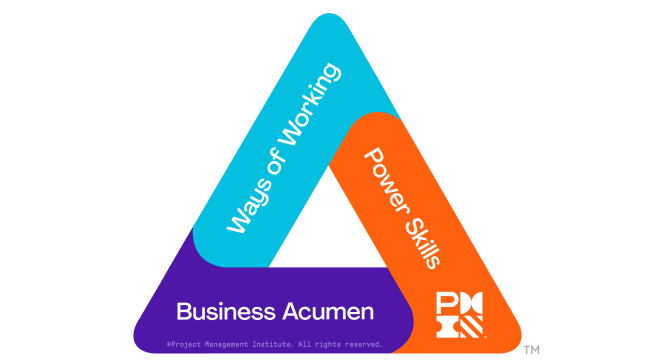Establishing and Managing Knowledge Management Systems for the Project Management Office (PMO): Strategies, Tools, and Best Practices for Building a Knowledge-Driven PMO
(FUSE-SPS- PDU 303)
This 6-PDU course (FUSE-SPS_PDU 303) will include knowledge checks at the end of each section/module, featuring multiple-choice questions, matching exercises, and short scenario-based questions to reinforce understanding and assess application of key concepts.

Talent Triangle Breakdown
Business Acumen: 3
Ways of Working: 2
Power Skills: 1
Individal Course Price
USD $59
Bundled Price – 60 PDUs
USD $399
PDUs
6
Course Duration
6 hours
Associate Certifications
PMP, PMI-ACP, CAPM, PMI-CP
Course Description
This course provides project management professionals with a practical and strategic framework for implementing effective knowledge management (KM) systems within the Project Management Office (PMO). In today’s complex project environments, the ability to capture, organize, share, and apply organizational knowledge is essential to enhancing project performance, accelerating learning, and driving continuous improvement. This course guides participants through the core principles and functions of knowledge management, with a specific focus on how KM strengthens the PMO’s role as a value-adding business function.
Participants will explore techniques for identifying critical knowledge assets, designing KM processes and repositories, and fostering a culture of knowledge sharing across project teams. The course also covers technology solutions for knowledge capture and collaboration, integration of lessons learned into project lifecycles, and alignment of KM practices with organizational strategy and maturity models. Through case studies, tools, and actionable templates, learners will leave equipped to establish, run, and sustain a knowledge-driven PMO that supports both operational efficiency and strategic transformation.
Learning Objectives
By the end of this course, particpants will be able to:
Understand the Role of Knowledge Management in the PMO
Explain the strategic importance of knowledge management in enhancing the effectiveness, efficiency, and value delivery of the Project Management Office.
Identify and Classify Knowledge Assets
Recognize key types of knowledge (explicit, tacit, embedded) within project environments and apply methods to capture, organize, and prioritize them for PMO use.
Design and Implement KM Systems and Processes
Develop workflows, repositories, and governance structures to support knowledge acquisition, retention, and dissemination across project teams and stakeholders.
Integrate KM into Project Lifecycle and PMO Functions
Apply knowledge management practices such as lessons learned, knowledge audits, and after-action reviews to enhance project planning, execution, and closure.
Leverage Technology for Knowledge Sharing and Collaboration
Evaluate and select digital tools and platforms that facilitate real-time collaboration, document management, and knowledge accessibility within and beyond the PMO.
Foster a Knowledge-Sharing Culture
Design interventions and strategies to promote cultural change that encourages continuous learning, team collaboration, and knowledge reuse across the organization.
What You Learn
Module 1: Knowledge Management Fundamentals for PMOs
Participants will explore knowledge management theory, understand the difference between explicit and tacit knowledge, and learn how PMOs can serve as knowledge hubs that capture project lessons learned, best practices, and organizational wisdom for future project success.
Module 2: Designing Knowledge Repositories and Systems
This module teaches participants to design and implement knowledge management systems, including document management platforms, project databases, and collaboration tools. Participants will learn to structure information architecture that supports easy knowledge discovery and reuse.
Module 3: Communities of Practice and Knowledge Sharing
Participants will learn to establish and facilitate communities of practice, design knowledge sharing sessions, and create cultural incentives that encourage project teams to contribute their experiences and insights to organizational knowledge bases.
Module 4: Lessons Learned and Best Practice Capture
This module focuses on systematic approaches to capturing lessons learned, conducting post-project reviews, and documenting best practices in ways that make them accessible and actionable for future project teams and stakeholders.
Module 5: Knowledge Metrics and Continuous Improvement
Participants will learn to measure knowledge management effectiveness, track knowledge reuse rates, and continuously improve knowledge systems based on user feedback and organizational needs assessment to maximize PMO value delivery.
